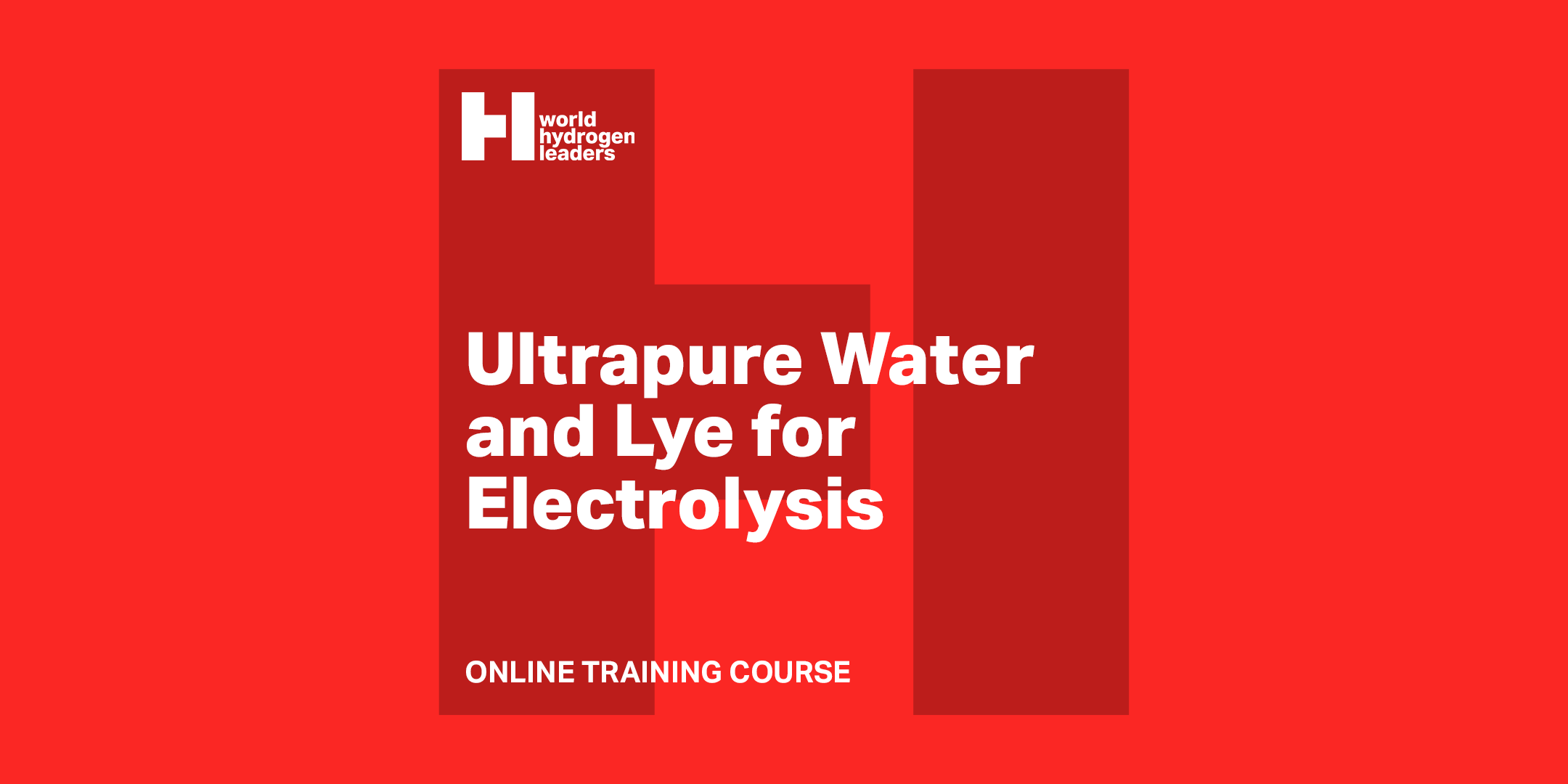Access all recordings and slides through the World Hydrogen Leaders platform with a premium membership.
Green hydrogen is produced through the electrolysis of water. The purity of the water is critical to ensure longevity of the electrolyser. Often, the best location for renewable power generation is in arid locations where pure water is scarce. However, projects are often located close to the oceans to enable subsequent export of the green hydrogen or derivative energy vectors. Desalination of the sea water is a viable route to ensure plentiful water supply for electrolysis without stressing local freshwater systems.
The other ‘hidden’ utilities for electrolysis are the Lye, or electrolyte solution and nitrogen which is essential for safe operation of the electrolyser. Local production and access to these utilities is essential. This course will look at the technologies and processes required to produce, purify, store, and use these essential utilities and feedstocks. Safety considerations when handling these materials will also be presented.
If you are investing in green hydrogen production or planning to operate an electrolyser facility, thinking beyond access to green electrons will be essential. Renewable power is key to green hydrogen, but the process relies on a range of inputs. This course will provide insights to broaden your understanding of the breadth of process requirements.
Over the course you will…
Understand how issues such as renewable power ‘variability’ impact hydrogen production
Compare and contrast different renewable power sources in the context of hydrogen integration
Assess how dedicated renewable power integration stacks up against ‘virtual’ options
Analyse key metrics and economic calculations, including sensitivities
Understand how the value of renewable power is changing, and how this impacts the opportunities for integration with hydrogen
Learn which factors are key to determining relative capacity choices (e.g. renewable output vs. hydrogen production)
Assess the practical project deployment and financial risk factors which developers will need to consider
Analyse the market context for integrating hydrogen with renewable power: why is it needed and what market value does it offer?
Agenda
Electrolysis technologies overview – water and lye requirements
Ultrapure water for electrolysis – the problems with impurities
From fresh water to ultrapure water for electrolysis
Purification within the water / lye recirculation loop
Desalination of seawater to fresh water
Lye for alkaline electrolysis technologies
Cooling water for alkaline, AEM and PEM electrolysis
Broader economic, social, and environmental considerations
Course Benefits:
Peer-to-peer networking: Join the World Hydrogen Leaders Hero group and meet all course attendees
It's Interactive: Q&A with your course leaders and a chance to network with other attendees
It's Complete: The different workshops cover both technology & real-world applications
No Travel: All workshops are delivered online, ideal for your new WFH office
Certificate: All attendees will receive a Certificate once they've completed the programme
Meet the trainer
Stephen B. Harrison is the founder and managing director at sbh4 GmbH in Germany. His work focuses on decarbonisation. Hydrogen and hydrogen derivatives such as ammonia and methanol are fundamental pillars of his consulting practice. Stephen’s hands-on expertise extends to the full length of the value chain from production, purification, distribution, and storage through to utilisation of these green energy vectors.
With a background in industrial gases, including 27 years at BOC Gases, The BOC Group and Linde Gas, Stephen has intimate knowledge of hydrogen and hydrogen derivatives from commercial, technical, operational and safety perspectives. Stephen served 14 years as a global business leader in these FTSE100 and DAX30 companies and had the opportunity to interact with people, businesses, and operations around the world.
What Attendees Are Saying
“The best part of the training was the level of engagement from the trainer; he was very clear in his explanations and was taking the time to answer all queries from trainees.”
“Good discussions and coverage over three days, especially Day 2 on renewable energy economics. Very relevant in the field.”


